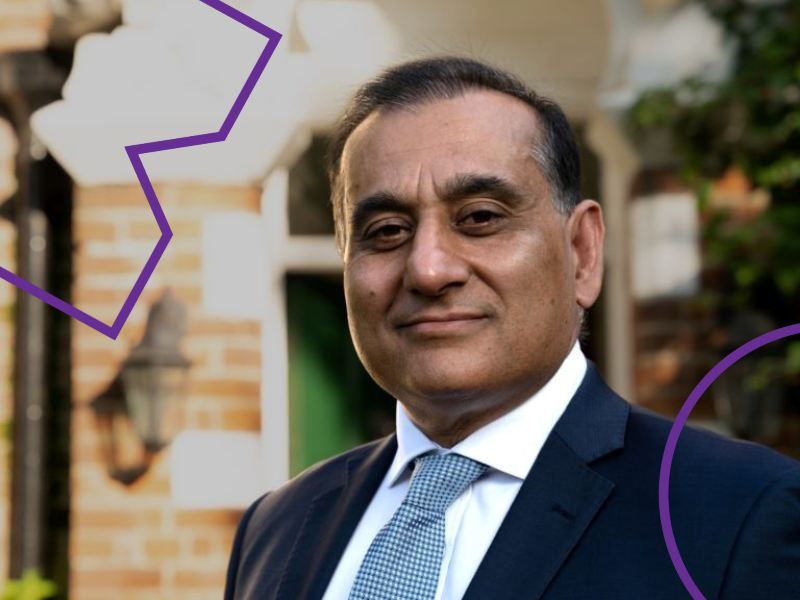Got an End-Point Assessment coming up with FuturU? We’ve got you covered with this in-depth guide to EPAs covering:
- What to expect from us ahead of your assessment
- How to prepare for your assessment
- The support you’ll receive from us in the run up to the big day
- What to expect on the day of your EPA itself
- What happens after you’ve completed your assessment and when you can expect to get your results.
What to expect from FuturU ahead of your End-Point Assessment
As you near the end of your apprenticeship, you’ll meet with your employer and training provider to decide together if you’re ready to take your End-Point Assessment (EPA). Evidence will be submitted to the End-Point Assessment Organisation (EPAO) conducting your assessment, for example FuturU. This process is known as Gateway.
Once we’ve reviewed and signed off your evidence, we’ll email you with an invitation to book all elements of your End-Point Assessment through our scheduling system. You’ll be able to choose a date and time to suit you – we have slots available on Saturdays and Sundays as well as weekdays, and from 7am to 7pm.
If you’re struggling to find a time that suits you, feel free to email us at scheduling@futuru.ai – we’ll do our best to find a time that works.
Once booked, you’ll receive a confirmation email outlining the date and time of the assessment, as well as your assessor’s name.
Read more: Meet our EPA assessors →
In the run-up to the big day, you’ll receive reminder emails that your assessment is coming up, and your assessor will send you a link to join the assessment call.
You’ll also receive an email from us with an invitation to sign into our learning platform where you can access revision materials and mock tests to help you prepare for your assessment. The materials available will depend on the standard you are being assessed against.
Alongside this, you’ll also get access to FuturU’s huge library of CPD-accredited courses.
How to prepare for your End-Point Assessment
Access the FuturU learning platform
You’ll receive an invitation to sign into our learning platform ahead of your assessment. Here you’ll find revision materials to help you prepare and get an idea of what to expect on the day.
If your End-Point Assessment includes a Situational Judgement Test, you’ll have the opportunity to take a mock test. This will give you an idea of the types of questions you’ll be asked, so you can revisit anything you feel less confident about.
You’ll also need to access the learning platform on the day of the assessment itself, so it’s a good idea to familiarise yourself with logging in and using the platform ahead of time.
If you have any questions or concerns ahead of assessment day, you can get in touch with your On-Programme Assessor or reach out to our dedicated EPA team at epa@futuru.ai.
Review your assessment plan
You’ll find all the knowledge, skills and behaviours that you’ll be assessed against during your End-Point Assessment in your assessment plan. You can search for your assessment plan on the IfATE website here.
Prepare notes
Depending on the assessment standard you’re taking, you may be able to prepare up to two single-sided A4 pages of bullet point notes. These must be hand-written or printed out – they shouldn’t be on a laptop or tablet. Notes are quick and easy to scan, and can be referred back to during your assessment to help jog your memory. Your training provider can let you know if notes are allowed in your assessment.
Keep your meeting link to hand
We use Google Meet for all our End-Point Assessments. Your assessor will email you a link to join the Google Meet after you’ve scheduled your assessment. It’s a good idea to check this link works, and that you’ve given Google permission to use your camera and microphone.
Find a quiet spot
Your assessment will be held remotely, but still under exam conditions. So it’s really important you find a quiet space where you won’t be disturbed for the duration of the assessment. Whether you’re taking your assessment at home or at work, find somewhere that you feel relaxed and is free from distractions.
Read more: How to calm nerves before your End-Point Assessment →
What to expect in your End-Point Assessment
You’ll receive a phone call from your assessor around 15 minutes to half an hour before your assessment start time. They’ll introduce themself, explain what’ll happen in the assessment and make sure you have everything you need to start. You can also use this time to ask any last minute questions.
When your assessment is scheduled to start, simply join the Google Meet via the link shared by your assessor, and make sure you’re logged into the learning platform.
You’ll be asked to show a form of photographic identification (eg. a passport, driving licence or work ID) at the start of every assessment, as well as any notes you’ve prepared so make sure you have these to hand.
Assessment breakdown
Your End-Point Assessment will consist of one or more of the following types of assessment. You can check which assessments you’ll need to complete in your assessment plan.
Situational Judgement Test
The Situational Judgement Test consists of 60 multiple choice questions – you’ll have an hour and a half to complete it. If you complete all 60 questions before the 90 minutes is up, you’ll have an opportunity to check through your answers before submitting them. You’re welcome to leave the test early if you don’t need all the time.
Professional Discussion
The Professional Discussion is a one-to-one conversation with your assessor lasting between 45 and 90 minutes depending on the standard you’re taking. They’ll ask you questions tailored to your job role. Further information on what you can expect to cover in your Professional Discussion can be found in your assessment plan.
Observation of Practice
This 90 minute assessment is split into two parts; a 60 minute Observation of Practice, where your assessor will observe you completing an activity with a minimum of two colleagues present (eg. a team meeting or training session), and a 30 minute post-observation Q&A, where you’ll talk one-to-one with your assessor.
After your assessment
You won’t get any feedback from your assessor on the day of your assessment but if you take a Situational Judgement Test you’ll find out if you’ve passed that element of your EPA right away.
You’ll get feedback, along with your results, once everything has been reviewed – this will generally be shared with you by your training provider.
For levels two and three standards you should expect your results back in 10 working days, and for levels four and five standards you should expect your results around 15 to 20 days after your final assessment.
Got a question?
Our team’s on hand to help. Simply email epa@futuru.ai and we’ll be in touch as soon as we can.
Read more: From SJTs to PDs: FuturU’s End-Point Assessment Glossary →









